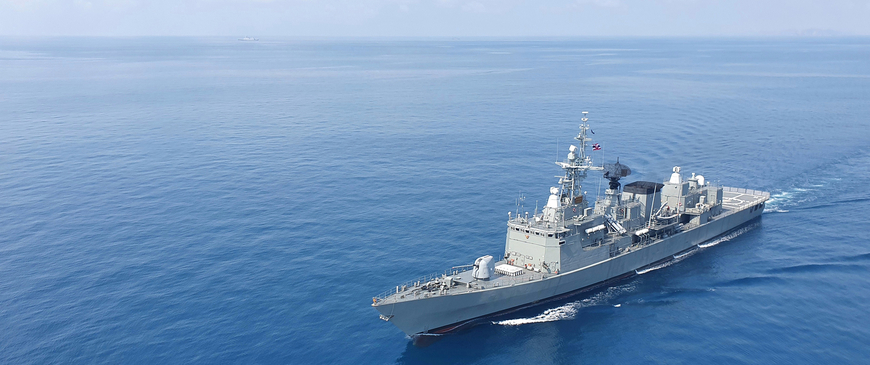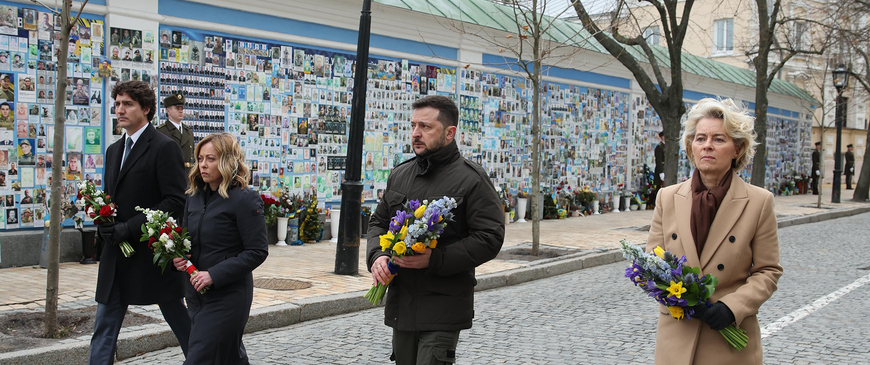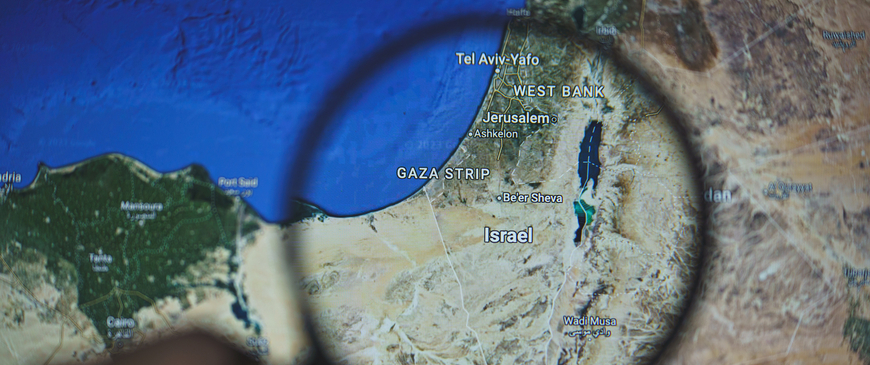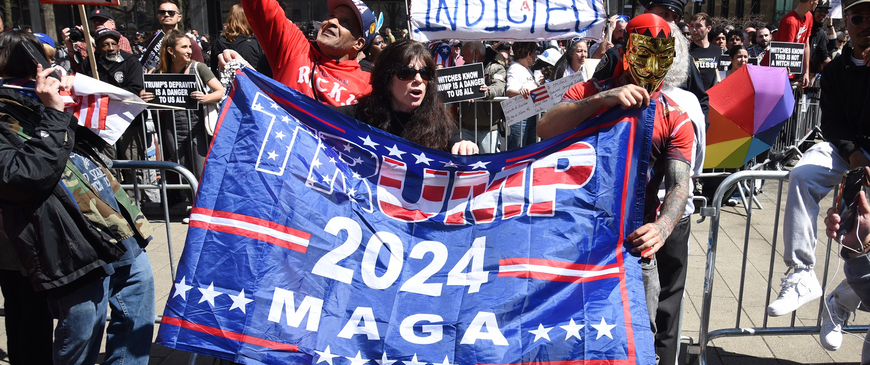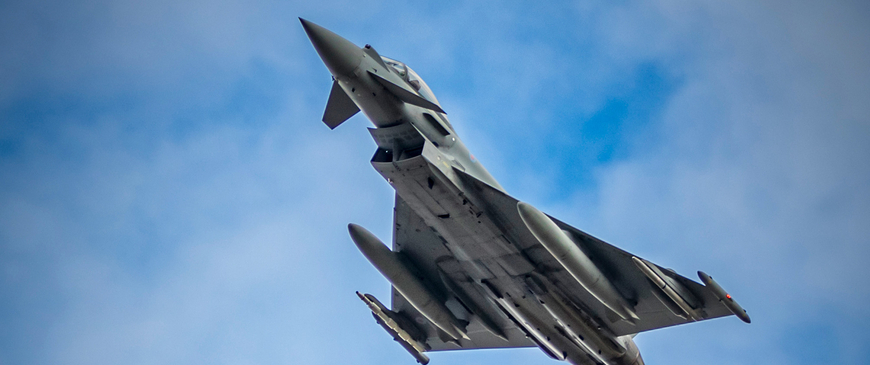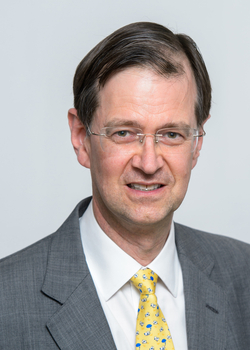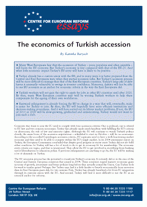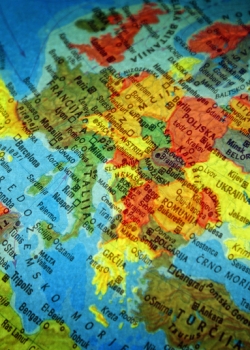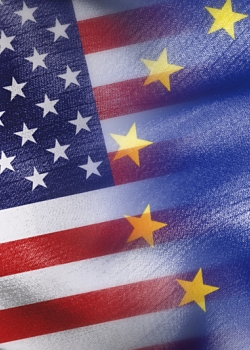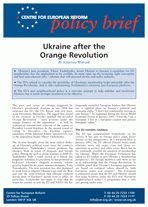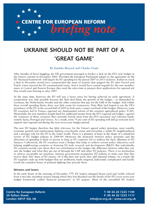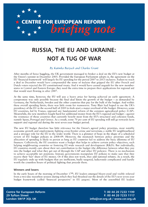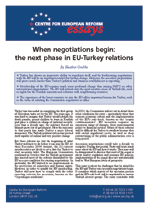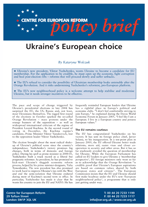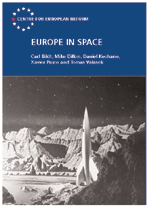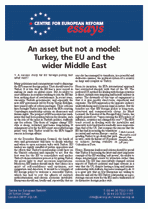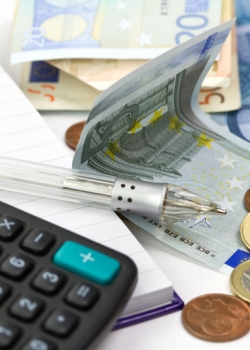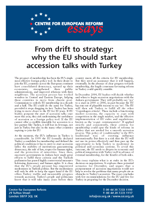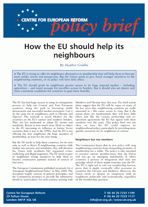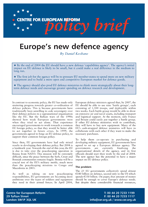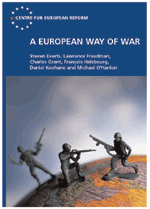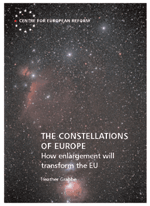Foreign policy & defence
The economics of Turkish accession
01 July 2005
Countries that want to join the EU need to comply with four accession criteria: One is political, one is related to EU law and two concern economics.
One year after enlargement
01 April 2005
When the EU took in ten more countries in May 2004, many people across Europe feared that an enlargement of that size would wreak havoc in the European economy and bring EU decision-making to a halt.
Issue 41 - 2005
25 March 2005
- What new transatlantic institutions?, Charles Grant, Mark Leonard
- Clumsy politics on services, John Monks
- One year after enlargement, Katinka Barysch
Ukraine after the Orange Revolution
04 February 2005
The pace and scope of change triggered by Ukraine's presidential elections in late 2004 has surprised the EU, the US, Russia and, not least, most Ukrainians themselves.
Ukraine should not be part of a 'great game'
08 December 2004
In their reporting of the crisis in Ukraine, the world's media have focused on the pro-Yushchenko demonstrators. But while this manifestation of 'people power' has understandably grabbed the headlines, another, more sinuous tale has unfolded in the chancelleries and foreign ministries of EU capitals, Moscow and Washington.
Russia, the EU and Ukraine: Not a tug of war
01 December 2004
What has been the real choice in Ukraine's presidential election? To judge not only from the Russian media, but also from some western newspapers, Ukraine is the subject of a tug of war between Russia and the West.
President Bush: Why you need the Europeans
01 December 2004
Dear Mr President, You have defeated an opponent who made a point of saying that he would pay more attention to European allies than you have done. You and your supporters must feel that your 'Americafirst' philosophy has been vindicated.
Your authority is now largely unchallenged at home. But that is...
Your authority is now largely unchallenged at home. But that is...
When negotiations begin: The next phase in EU-Turkey relations
05 November 2004
Turkey has succeeded in completing the first group of Herculean tasks set by the EU. Ten years ago, it was hard to imagine that Turkey would abolish the death penalty, permit children to learn in Kurdish and place a civilian in charge of national security.
Ukraine's European choice
01 October 2004
During the 1990s, the EU was busy completing its single market, introducing the euro and helping the Central and East European applicants get ready for accession.
Europe in space
01 October 2004
Europe should invest more in space-based technology to promote its economic and security interests. The authors argue that major satellite projects such as Galileo not only boost Europe's high-tech industry and competitiveness.
An asset but not a model: Turkey, the EU and the wider Middle East
01 October 2004
Many politicians and commentators tend to disparage the EU's nascent foreign policy. They should travel to Turkey. It is true that the EU has a poor record in making its mark on global crises.
Is tax competition bad?
02 August 2004
EU enlargement was meant to be a cause for celebration. But one seemingly esoteric issue is threatening to spoil the fun: taxation. West Europeans fear that low tax rates in the new member-states will lure companies eastward, taking jobs and investment with them.
Issue 37 - 2004
30 July 2004
- The recipe for a successful Commission, Alasdair Murray
- Is tax competition bad?, Katinka Barysch
- The peculiarities of the British, Charles Grant
From drift to strategy: Why the EU should start accession talks with Turkey
02 July 2004
The prospect of membership has been the EU's single most effective foreign policy tool. In their desire to join the EU, countries across the European continent have consolidated democracy, opened up their economies, strengthened their public administrations, and improved relations with their neighbours.
How the EU should help its neighbours
04 June 2004
The EU has had huge success in using its enlargement process to help ten Central and East European countries along the path to becoming stable democracies and successful market economies. Can it do the same for its neighbours, such as Ukraine and Algeria?
Europe's new defence agency
04 June 2004
By the end of 2004 the EU should have a new defence 'capabilities agency'. The agency’s initial impact on EU defence is likely to be small, but it could make a real difference in the medium to long run.
Where are the Eastern hordes?
01 June 2004
Readers of best-selling British newspapers must have the strong impression that the EU's eastward enlargement is primarily about migration.
Issue 36 - 2004
28 May 2004
- Where are the Eastern hordes?, Heather Grabbe
- Who's afraid of the charter of rights?, Mónica Roma
- If Britain votes no ..., Charles Grant
A European way of war
03 May 2004
The Europeans should develop their own distinctive approach to warfare, argue the authors of this report. Although the Europeans can learn from the Americans on how to prepare for the most demanding sorts of military mission, they should build on their core strengths of peacekeeping, nation-building and counter-insurgency.
The constellations of Europe: How enlargement will transform the EU
02 April 2004
Eastward enlargement will change the EU far more than its current members expect. Heather Grabbe plots the new members' positions in the emerging constellations of Europe - on the new constitution, the EU's budget, economic and regulatory policies, border controls, defence and the EU's role in the world.

